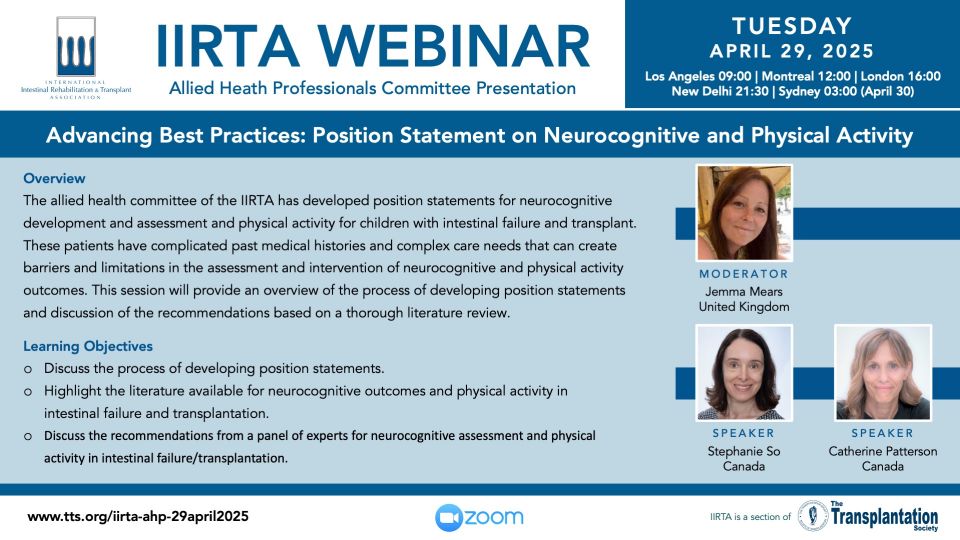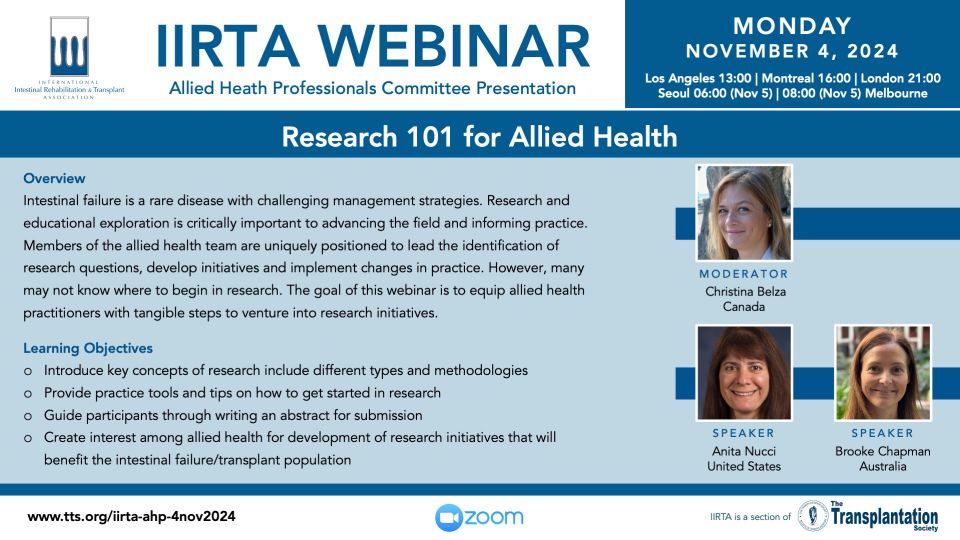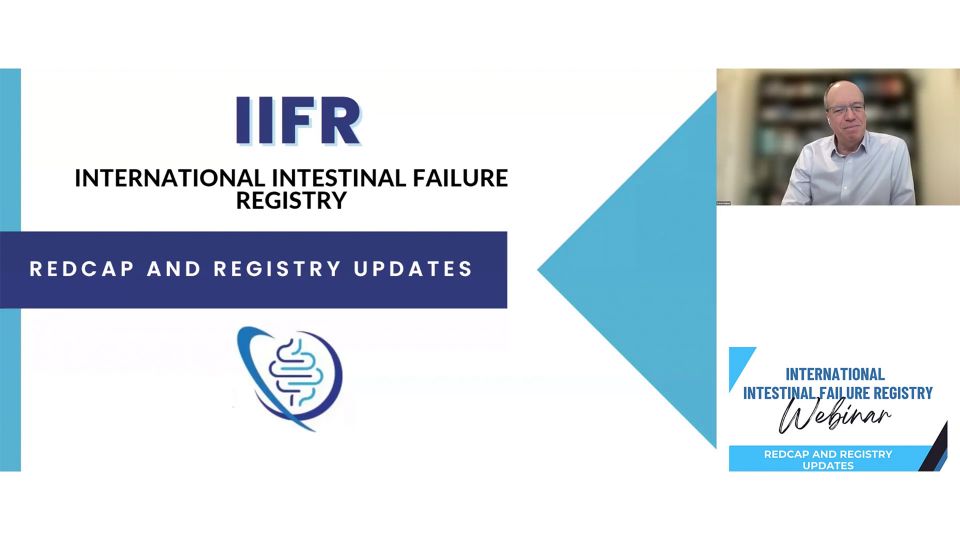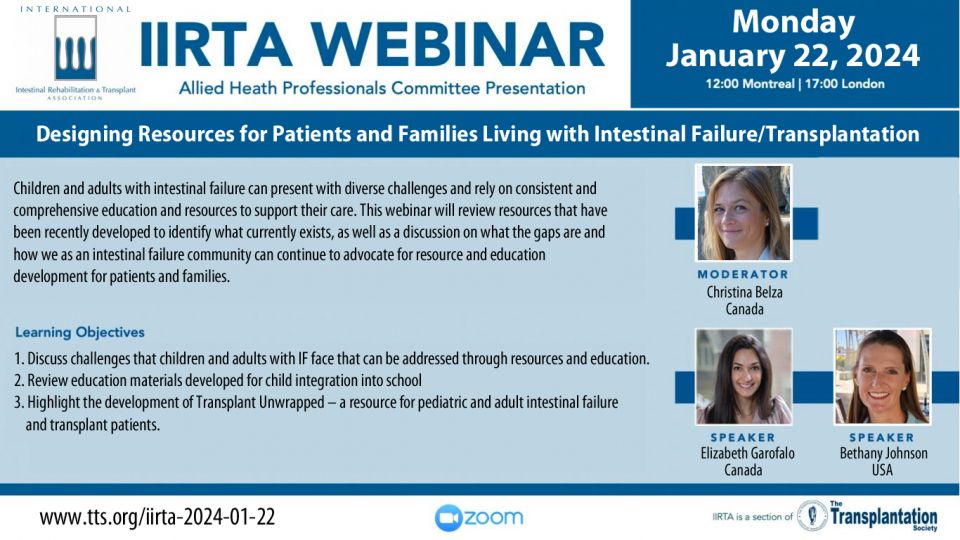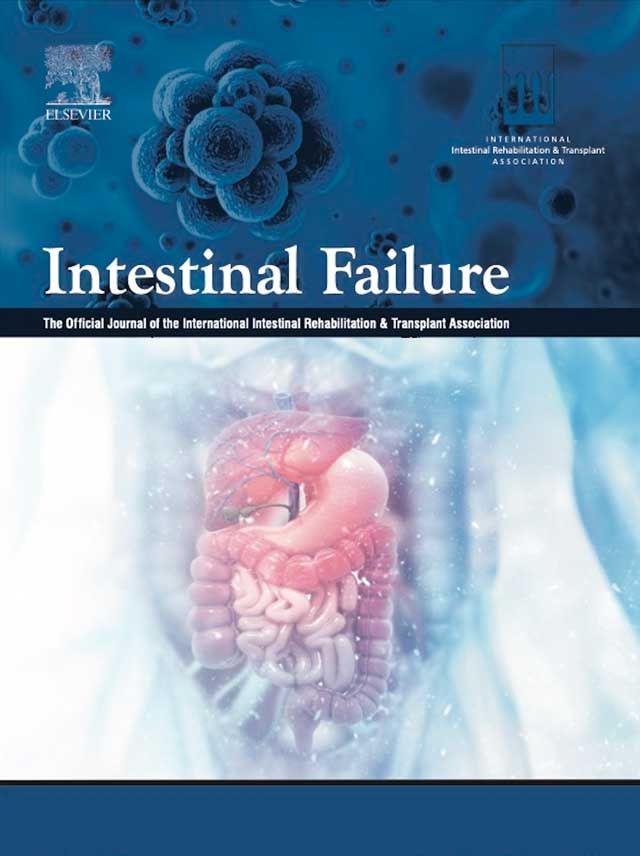
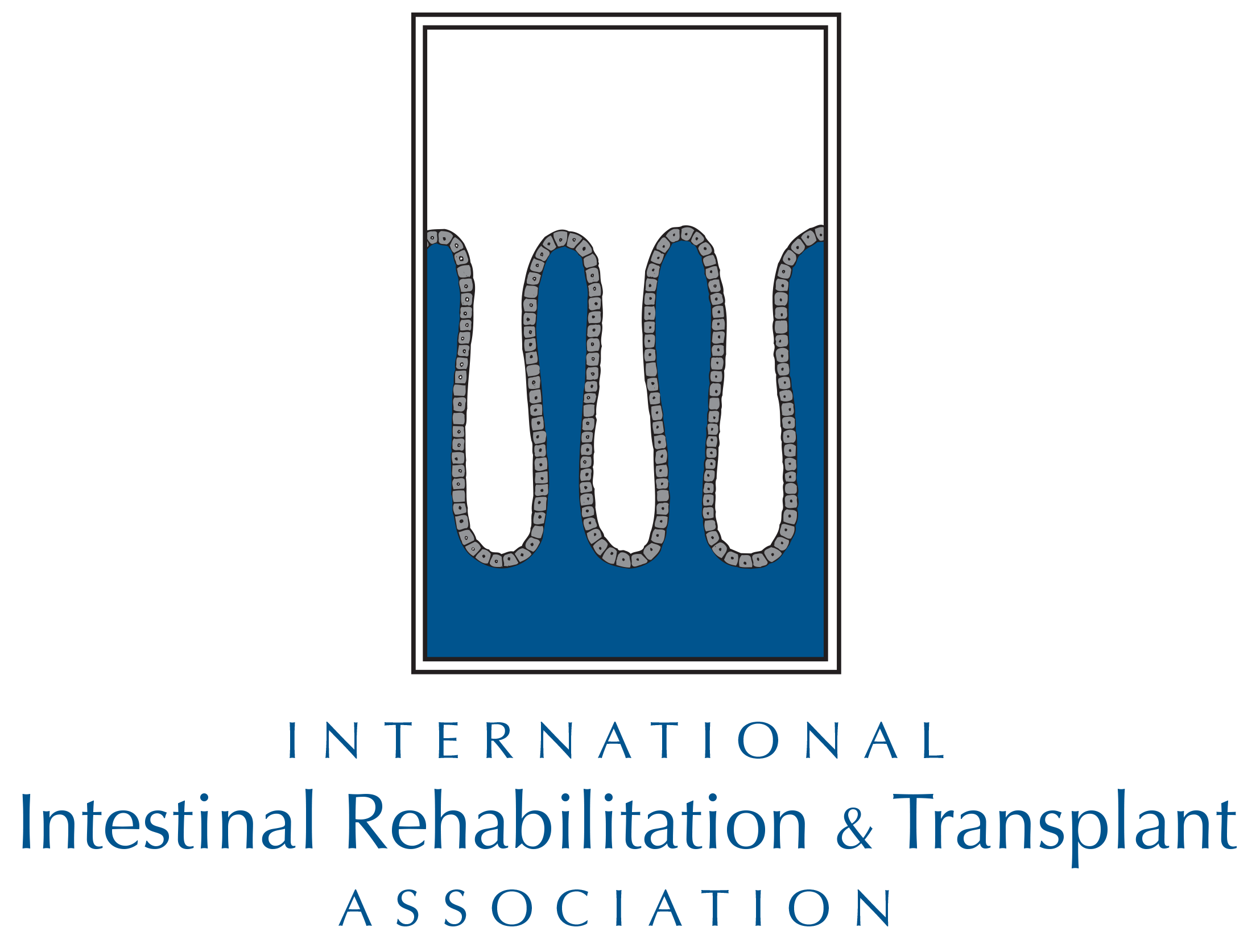
Special IIRTA Feature


The Intestinal Transplant Association (ITA) was born in 2003 reflecting the joint vision of the late Richard Wood and Kareem Abu-Elmagd at the VIth International Small Bowel Transplant Symposium in 1999. The participants in the VIIIth International Small Bowel Transplantation Symposium held in Miami in 2003, unanimously voted to establish the Intestinal Transplant Association (ITA) as a formalized and unified group of professionals with a common interest in intestinal failure, intestinal rehabilitation, and intestinal transplantation.
This proposal was later put forth before the Council of The Transplantation Society (TTS) who accepted the ITA as a Section within The Transplantation Society. The formal name of the society has changed over the years as the fields of intestinal failure and transplant have evolved and the international nature of the society has been recognized.
Through the leadership of the multidisciplinary elected council, the IIRTA seeks to promote medical and surgical advances and research to optimize the lives of all patients with intestinal failure. Dedicated committees oversee membership, scientific activities, educational events and communications.
Intestinal Failure - The Official Journal IIRTA
Editor-in-Chief:
Douglas G Farmer, MD., FACS, CTS
University of California Los Angeles
David Geffen School of Medicine
Los Angeles, California, United States
Intestinal Transplant, Pediatric Liver Transplantation
Deputy Editor:
Helen M. Evans, BSc (Hons), MBChB, MRCP, MRCPCH, FRACP
Starship Child Health
Auckland, New Zealand
Paediatric Gastroenterology, Intestinal Failure, Clinical Nutrition, Liver Disease
Associate Editors:
Simon Lal, BSc (Hons), MBChB, FRCP, PhD
Salford Royal Hospital Intestinal Failure Unit
Salford, United Kingdom
Gastroenterology, Clinical Nutrition &, Intestinal Failure
Josh Weiner, MD
New York-Presbyterian Columbia University Medical Center
New York, New York, United States
Intestinal transplantation, Transplant tolerance, Xenotransplantation
Online ISSN 2950-4562
Copyright © 2025 International Intestinal Rehabilitation & Transplant Association. Published by Elsevier Inc. All rights are reserved, including those for text and data mining, AI training, and similar technologies.
https://www.elsevier.com
Intestinal Failure, the official journal of the IIRTA, launched in early 2024 under the leadership of Doug Farmer, from UCLA, as Editor-In-Chief; and Helen Evans, from Starship Children’s Health NZ, as Deputy Editor. This open-access journal aims to be the leading publication in the fields of intestinal failure, intestinal rehabilitation and intestinal/multivisceral transplantation. It is truly multidisciplinary and bridges basic science and clinical research. A special issue from the PIFRS meeting in Pittsburgh will be followed by a second special issue from CIIRTA 2025. So far articles published originate from 8 different countries across adults and paediatrics and encompassing all aspects of intestinal rehabilitation.
Most Downloaded Article
Anticoagulation and antiplatelet therapy in short bowel syndrome: A systematic review
Carolyn Mercer, Anna Crawford, Susan Shapiro, Philip J Allan, Tim Ambrose.
Intestinal Failure, Volume 1, 100007
Editor's Highlighted Article
Outcomes after intestinal re-transplant: A detailed, single-center analysis of clinical and technical factors
Carolyn P. Smullin, Robert S. Venick, Suzanne V. McDiarmid, Ronald W. Busuttil, Douglas G. Farmer
The reason I enjoyed this paper is that it was our first submission, and very encouraging to receive such an impactful paper from our inception. The authors identified a group of patients more likely to need re-transplantation – male, children, Hispanic ethnicity, positive cross-matches – and that they were more likely to be re-transplanted with a liver-inclusive graft. Although not statistically significant, there was a trend for patients to have a better outcome following re-transplantation if they had undergone a prior transplant enterectomy. There was no significant difference between outcomes after primary and re-transplantation. These findings highlight that selected patients can do very well after re-transplantation and centers should not be discouraged in re-listing their patients.
- Helen Evans, Deputy Editor
CIIRTA 2025
Follow the IIRTA and CIIRTA2025 on Social Media!
Recent Intestinal Transplant Publications in the Transplantation Journal
Endoscopic Surveillance of the Intestinal Allograft: Recommendations From the Intestinal Rehabilitation and Transplant Association
Precision Delivery of Therapeutics to the Intestine: A Case Series of Superselective Steroid Administration in Pediatric Intestinal Transplant Recipients
Current Advances in Graft-versus-host Disease After Intestinal Transplantation
Contact
Address
The Transplantation Society
International Headquarters
740 Notre-Dame Ouest
Suite 1245
Montréal, QC, H3C 3X6
Canada

